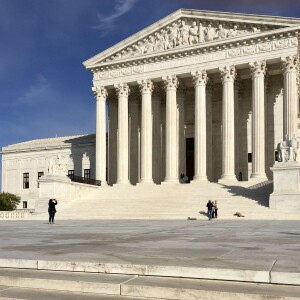
Great Lakes Insurance v. Raiders Retreat Realty (Maritime Contract)
 2024-02-22
2024-02-22
Great Lakes v. Raiders
Great Lakes Insurance (organized in Germany and HQ in UK) entered into a maritime insurance contract with Raiders Retreat Realty Company (HQ in PA). The contract included a provision to apply New York law. A Raiders vessel had an incident in Florida, Raiders then filed a claim. Great Lakes filed for declaratory judgment in a Pennsylvania federal court. Raiders responded in that case. The PA federal court applied New York law and denied the Raiders claims under Pennsylvania law. On appeal, the Third Circuit recognized that choice of law provisions in Maritime contracts were presumptively valid, but that there must be a valid public policy reason to allow for it. The Third Circuit remanded back to the federal district court, instructing the court to consider the public policy interests of Pennsylvania in the maritime insurance context. Held: Choice of law provisions in maritime contracts are presumptively enforceable under federal maritime law, with narrow exceptions, not applicable here. Justice Kavanaugh, writing for a unanimous court, explains that this strong presumption exists, in part, to support uniformity across maritime law, he reasons that the Court's precedent about venue selection clauses further demonstrates this.
Justice Thomas Concurrence. Justice Thomas filed an opinion concurring in the judgment, but writing that he believed the Court's reliance on Wilburn Boat Co. v. Fireman's Fund Insurance, 348 US 310 (1955) to be wrongly placed. In that case, Thomas writes, the Court chose to apply state law, rather than applying the presumption about the choice of law provisions, after applying a two-party test, this test asks: “(1) Is there a judicially established federal admiralty rule governing these warranties? (2) If not, should we fashion one?” Id., at 314. Answering both questions in the negative, this Court concluded that state law governs the effect of a breach of warranty in a marine-insurance policy." Although the Court has limited this primarily "local disputes," he cautions that the Court's reasoning in that case is "deeply flawed."
Read by Jeff Barnum.
More Episodes
 2018-07-14
2018-07-14
 2018-06-29
2018-06-29
 2018-06-28
2018-06-28
 2018-06-27
2018-06-27
 2018-06-27
2018-06-27
 2018-06-26
2018-06-26
 2018-06-26
2018-06-26
 2018-06-25
2018-06-25
 2018-06-25
2018-06-25
 2018-06-23
2018-06-23
 2018-06-23
2018-06-23
 2018-06-22
2018-06-22
 2018-06-22
2018-06-22
 2018-06-21
2018-06-21
 2018-06-21
2018-06-21
 2018-06-21
2018-06-21
 2018-06-18
2018-06-18
 2018-06-18
2018-06-18
 2018-06-18
2018-06-18
Create your
podcast in
minutes
- Full-featured podcast site
- Unlimited storage and bandwidth
- Comprehensive podcast stats
- Distribute to Apple Podcasts, Spotify, and more
- Make money with your podcast
It is Free
- Privacy Policy
- Cookie Policy
- Terms of Use
- Consent Preferences
- Copyright © 2015-2024 Podbean.com




